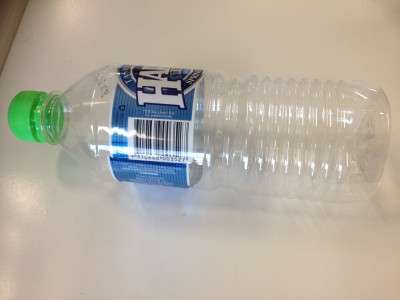Chipless tracker could transform barcode industry

Barcodes on packaged goods could soon be a thing of the past with the rapid expansion of chipless tags, and Monash University researchers are at the forefront of developing this technology.
A research team lead by Dr Nemai Karmakar, from the Department of Electrical and Computer Systems Engineering, have long been developing chipless radio frequency identification (RFID) tags that can be printed directly onto products and packaging - including postal items, drugs and books - making it cheaper, smaller and faster than any other tracking system on the market.
Now, the team have developed fully printable tags for metals and liquids including water bottles and soft-drinks cans. Until now, this hasn't been possible because the metal and liquids interfere with the technology. The tag can be printed with an inkjet printer and can be read when they are attached to reflective surfaces such as metal cans and water bottles.
Dr Karmakar said the team was believed to be the first to develop fully printable chipless RFID tags on paper and plastics, and the technology could revolutionize the multi-billion dollar RFID market.
"The fact that chipless tags be printed directly onto products and packaging means they are far more reliable, smaller and cost effective than any other barcoding system," Dr Karmakar said.
"The new chipless RFID technology is a high data capacity mm-wave barcode system that operates at 60 GHz mm-wave signal. This means it is much smaller than any other commercially available chipless RFID tags, however it can still contain a high amount of data and information.
"The main challenge that we have overcome is to transfer the technology to paper and plastic while retaining the required printing resolution. Uniquely, the 60 GHz mm-wave tag can handle printing errors and surface variations. It's very promising indeed in its ability to revolutionize the multi-billion dollar RFID market."
Dr Karmakar said the chipless RFID tag could also be used in temperature above 80 degrees and cryogenic temperatures.
"Another application could be biomedical samples stored at cryogenic temperatures," Dr Karmakar said.
Provided by Monash University

















